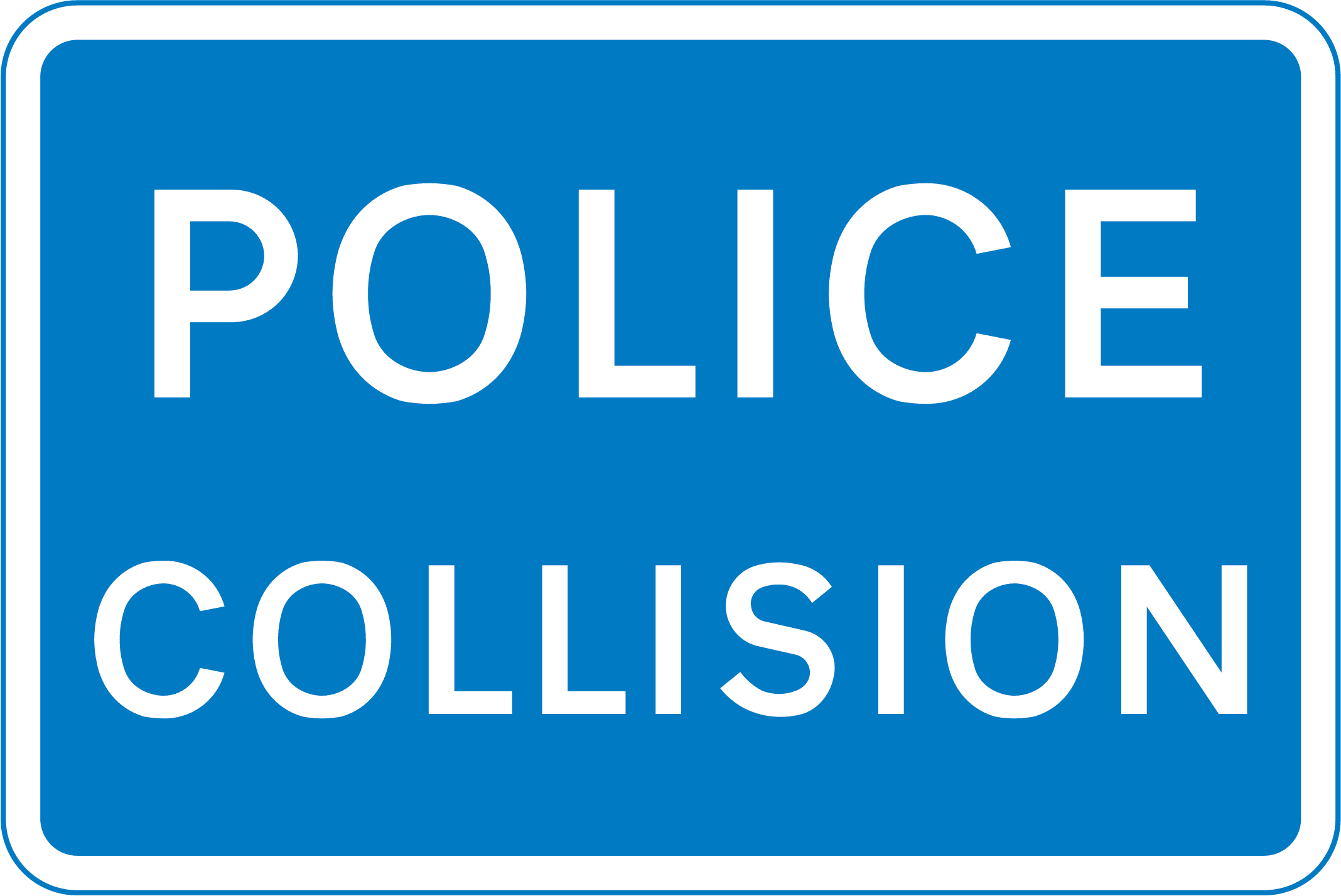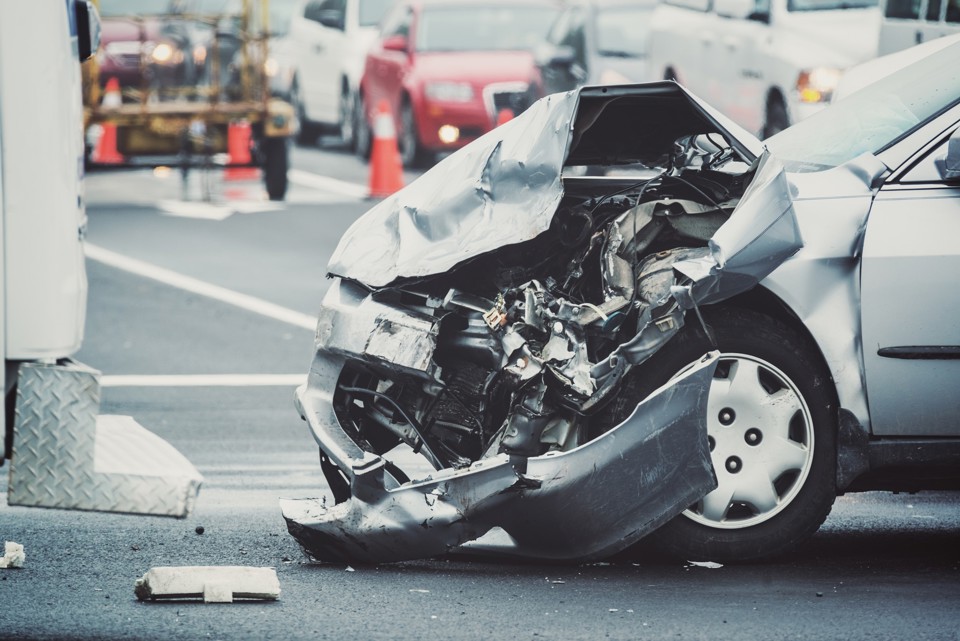Police will be able to replace ‘Police Accident’ road signs and in-car messaging with ‘Police Collison’ in the latest step to improve the language used around road safety.
The National Police Chiefs’ Council (NPCC) and campaigners have welcomed the move on the basis the majority of collisions are the avoidable outcome of human behaviour and the word ‘accident’ failed to reflect this.
The change, which was sought by police, comes thanks to a special authorisation from the Department for Transport (DfT), which legislates the design and use of road signage.
A recent report relating to the UK’s Road Collision Reporting Guidelines revealed police have largely phased out use of the word ‘accident’ in their communications with the public.
Commander Kyle Gordon of NPCC Roads Policing Operations said: “Another positive step in our work around the Road Collision Reporting Guidelines is the agreement to update temporary road signage and in-car digital displays to use the word ‘collision’.
“I know this change will be welcomed by our colleagues in policing who see first-hand the serious and long-lasting impact of collisions on individuals, families and communities. Five people killed and over 80 seriously injured on our roads every day is quite simply unacceptable.
“The vast majority of these collisions are simply avoidable if people start to take seriously their own personal responsibility for safe use of the roads.
“The correct use of language is essential to ensure we bring people’s attention to the actual negligence present in so many of these collisions in order to try and prevent this level of harm on our roads.”

The five most common contributory factors of collisions, the so-called ‘fatal five’, are speeding, drink and drug driving, distracted driving, careless driving and not wearing a seatbelt.
RoadPeace, the national charity for road crash victims, has a long-running ‘Crash Not Accident’ campaign to try and shift language around road collisions, while Jo Shiner, the NPCC roads policing lead, has previously called for the word to be scrapped.
Howard Jones, CEO of RoadPeace, said: “This is an important step forward in changing the language around road crashes. Referring to incidents as ‘collisions’ rather than ‘accidents’ helps to reflect the reality that most crashes are preventable, not inevitable.
“Words matter, and this shift aligns with the need for greater accountability and understanding of road harm. At RoadPeace, we have long campaigned for this change, and we welcome the DfT’s decision to update police signage. It’s a small but significant move towards recognising and addressing the devastating impact of road collisions.”
As police forces replace their road signs, Fleet News understands, ‘collision’ signs will replace those saying ‘accident’, as will visible messages on rear-facing in-car police notice boards.
Blue ‘Police Accident’ signs are used by police at the roadside to warn road users to proceed with caution.
The signs are designated in the guidance known as Traffic Signs and General Directions. Special authorisations are applied for regularly, including by local authorities.
In November the former Secretary of State for Transport, Louise Haigh, granted an application by the Association of Chief Police Officers (ACPO) to use, for example, ‘collision ahead’, on signs, rather than ‘accident ahead’, and to use ‘collision’ on variable signs, such as the digital displays in police cars.
Jamie Hassall, executive director at the Parliamentary Advisory Council for Transport Safety (PACTS), added: “This is another milestone in ensuring the right language is being used by everyone when talking about collisions and crashes.”
In October, National Highways confirmed it would stop using the word ‘accident’, following pressure from road safety organisations and bereaved families of those killed in road collisions.
The strategic roads body had previously defended the word’s use as consistent with police road signage.
A DfT spokesperson said: “We want to support victims of road collisions and their families however we can and have approved this request.
“The use of ‘collision’ is in line with the terminology already used by emergency services and road traffic collision organisations.”



















Login to comment
Comments
No comments have been made yet.